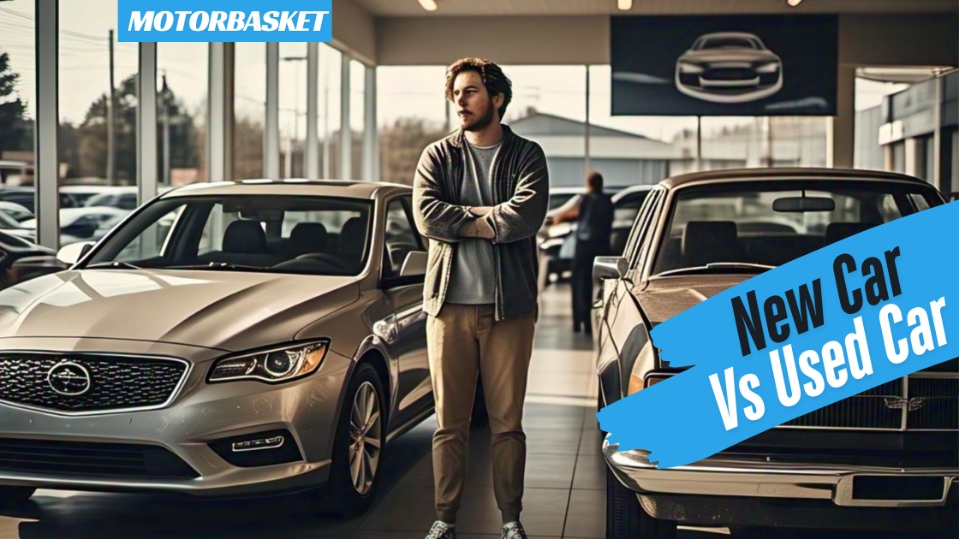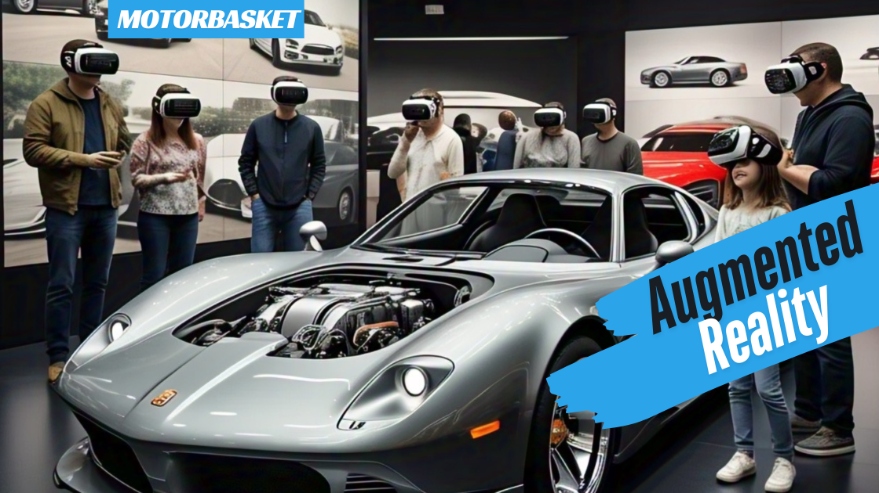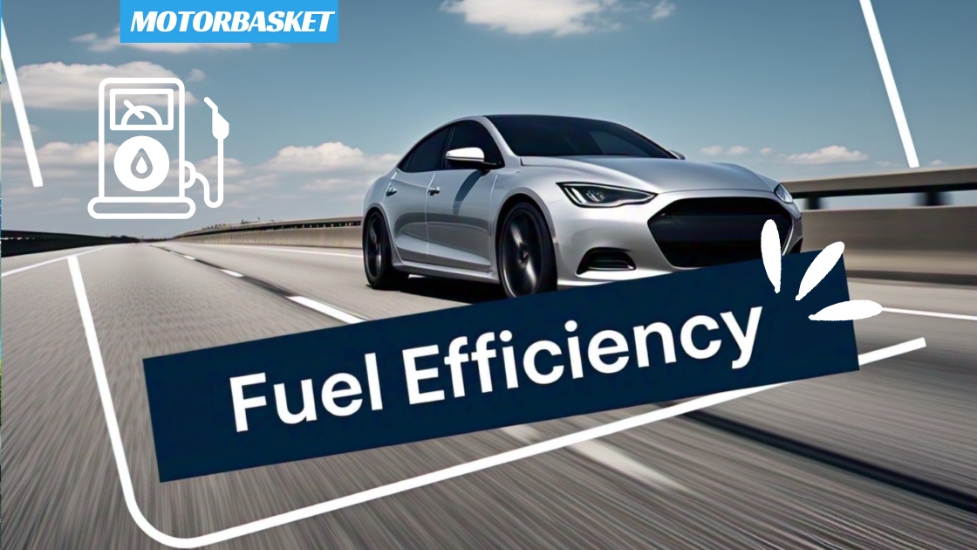7 Smart Reasons to Choose Between New and Used Cars: Find Your Perfect Ride with Confidence!
When it comes to buying a car, one of the biggest decisions you’ll face is choosing between new and used cars. Both options have their own set of advantages and disadvantages, and the right choice depends on your budget, preferences, and lifestyle. In this blog, we’ll break down the pros and cons of new and used cars to help you make an informed decision. Whether you’re a first-time buyer or a seasoned car enthusiast, this new and used cars guide will provide valuable insights to steer you in the right direction.
Table of Contents
New Cars: The Pros and Cons
Pros of Buying New Cars
1. Latest Technology and Features
New cars come equipped with the latest technology, including advanced safety features, infotainment systems, and fuel-efficient engines. If you’re someone who loves cutting-edge innovations, new cars are the way to go.
2. Warranty and Reliability
One of the biggest advantages of buying new cars is the manufacturer’s warranty. Most new cars come with a comprehensive warranty that covers repairs and maintenance for several years. This means you can drive with peace of mind, knowing that unexpected expenses are unlikely.
3. Customization Options
When you buy new cars, you have the freedom to customize them to your liking. From choosing the color and interior materials to adding optional features, you can create a car that perfectly suits your needs and style.
4. Lower Maintenance Costs
New cars are less likely to require repairs in the first few years of ownership. This translates to lower maintenance costs and fewer trips to the mechanic.
Cons of Buying New Cars
1. Higher Depreciation
New cars lose value quickly, with most models depreciating by 20-30% in the first year. This means you could lose a significant amount of money if you decide to sell the car in the near future.
2. Higher Purchase Price
The biggest downside of buying new cars is the higher upfront cost. New cars are significantly more expensive than used cars, and this can strain your budget.
3. Higher Insurance Premiums
New cars typically come with higher insurance premiums due to their higher value and repair costs. This is an additional expense that you’ll need to factor into your budget.
Used Cars: The Pros and Cons
Pros of Buying Used Cars
1. Lower Purchase Price
The most obvious advantage of buying used cars is the lower price tag. Used cars are significantly cheaper than new cars, allowing you to get more value for your money.
2. Slower Depreciation
Used cars depreciate at a much slower rate than new cars. This means you’re less likely to lose a large chunk of your investment if you decide to sell the car later.
3. Lower Insurance Costs
Since used cars have a lower market value, they typically come with lower insurance premiums. This can save you a substantial amount of money over time.
4. Certified Pre-Owned Options
Many dealerships offer certified pre-owned (CPO) vehicles that have been thoroughly inspected and come with extended warranties. This provides a middle ground between new and used cars, offering reliability at a lower cost.
Cons of Buying Used Cars
1. Limited Warranty Coverage
Unlike new cars, used cars often come with limited or no warranty coverage. This means you may have to bear the cost of repairs and maintenance out of pocket.
2. Higher Maintenance Costs
Older cars are more likely to require repairs and maintenance, which can add up over time. You’ll also need to account for the cost of replacing worn-out parts.
3. Outdated Technology
Used cars may lack the latest technology and safety features found in newer models. If having the most advanced features is important to you, used cars might not meet your expectations.
4. Uncertain History
Unless you’re buying a certified pre-owned vehicle, it can be difficult to know the full history of used cars. Issues like accidents, poor maintenance, or odometer tampering can be hard to detect.
Key Factors to Consider When Choosing Between New and Used Cars
1. Budget
Your budget is one of the most important factors to consider. If you have a limited budget, used cars might be the better option. However, if you can afford the higher upfront cost, new cars offer greater reliability and peace of mind.
2. Lifestyle and Needs
Think about your lifestyle and what you need from a car. If you’re someone who values the latest technology and features, new cars might be worth the investment. On the other hand, if you’re looking for a budget-friendly option that gets you from point A to point B, used cars could be the way to go.
3. Long-Term vs. Short-Term Ownership
If you plan to keep the car for a long time, new cars might make more sense due to their warranty and lower maintenance costs. However, if you’re only planning to use the car for a few years, used cars could save you money on depreciation.
4. Financing Options
New cars often come with attractive financing options, such as low-interest rates and special promotions. Used cars, on the other hand, may have higher interest rates, especially if they’re older.
Real-Life Scenarios: New and Used Cars
Scenario 1: The Tech Enthusiast
If you’re someone who loves the latest gadgets and features, new cars are likely the better choice. You’ll enjoy advanced safety systems, cutting-edge infotainment, and the latest engine technology.
Scenario 2: The Budget-Conscious Buyer
For those on a tight budget, used cars offer excellent value. You can get a reliable vehicle at a fraction of the cost of new cars, leaving room in your budget for other expenses.
Scenario 3: The Family-Oriented Buyer
Families often prioritize safety and reliability. A certified pre-owned car can be a great option, offering the reliability of new cars at a lower price.
Conclusion: Which is Right for You?
The decision between new and used cars ultimately comes down to your personal preferences, budget, and needs. New cars offer the latest technology, warranty coverage, and peace of mind, but they come with a higher price tag and faster depreciation. Used cars, on the other hand, are more affordable and depreciate slower, but they may require more maintenance and lack the latest features.
At Motorbasket, we believe there’s no one-size-fits-all answer. The most important thing to choose between new and used cars is to do your research, weigh the pros and cons, and make a decision that aligns with your goals.
By understanding the pros and cons of new and used cars, you can make a confident choice that suits your lifestyle and budget. Happy car shopping!
Click on Below Links to Follow Us on Our Social Media Pages
Click on Below Links to Read Our Company Policies




